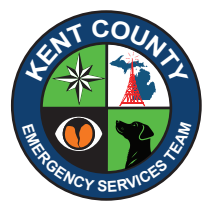Q: What are the time commitments to join SAR?
A: This can be a hard question to answer. There are always 2 parts to this. Training and Response.
Training: To get an idea of the training “time” you need to look at the training requirements for each level. Each requirement has a set amount of time that it should or could take to teach a subject. Sometimes it takes less time then is listed to teach a class. On a Monthly basis we hold a membership meeting / training every 3rd Thursday of the month, sometimes this training is moved to the weekend or extended the night of to cover a specific topic.
Throughout the year, we hold many classes outside of monthly training and there are also many hours of self study required.
In the spring, we hold our SAR School, and a new member can expect to dedicate one weekend per month from March to June. In the fall, we hold a supplement school for those missed in the spring.
Response: Obviously work, school, family all come before an activation, although many members’ employer allow them to leave and members families are generally pretty accepting of missing a family occasion as they put themselves in the victims families place.
Q: I have no experience in emergency service. What about training? Who does it and under what authority?
A: That’s not a problem, we train you. No experience is needed! Training is always brought to the membership when possible by members of the SAR team. Some members are instructors for various training programs that benefit from the members volunteering with SAR or vice versa. When possible we always will train in house as we consider our members family. When it comes to authority for “certifications” given, depending on the type of certification, it all depends on the instructor. Our programs meet all standard national and federal guidelines and any private organizations training requirements, e.g. American Heart Association for CPR / First aid, FEMA, ASTM, NFPA, etc, .
Q: Does it cost anything for training?
A: Sometimes yes, we try to keep training’s as free / inexpensive as possible to members. We really try to train within the group using our own resources when possible. Sometimes costs are passed on to members because of outside costs. For example, during the SAR operations training we charge a fee which covers expenses for the weekend including food for the class, glow sticks, flagging tape, gas for the response truck, and other “disposable” items. We do this because the instructors cannot afford to buy everything for each class. Whatever is left goes right back into the group’s bank account and there is never a monetary gain. Other training can cost more depending on instructor’s expenses and fees. We always try to keep it as low as possible.
Q: I work? I have a family?
A: So do the rest of us! Welcome you’re among friends. Family, work, and school all come before volunteering. We understand that these things are out there. We just ask you to do the best possible and to always evaluate your position / status before making any commitments.
Q: What’s the 60% commitment rule I hear about?
A: To keep members proficient in what we do, we try to require a commitment level of 60% of all of our activities. This can mean anything from training classes, activations, meetings, paging tests, radio nets. It all adds up and we use it to gauge availability / status of members.
Q: Who is in charge of KCEST & Kent County Search and Rescue?
A: Kent County Search and Rescue is an independent non-profit which is run by the Kent County Emergency Services Team. KCSAR works with agencies in and around Kent County but not for the Kent County Sheriffs department directly. Donations are also handled by KCEST for more information check out the website @ www.kcest.org
Q: Where do you hold your meetings and training classes?
A: During the winter months, we are lucky that we get to use space at various public safety agency’s facilities. We are guests of the hosting agency and are grateful for the use. During the nicer weather we prefer to train outdoors. The outdoor training schedule is from late March – November and Winter December to late March. We do utilize classroom instruction at various times through the year depending on the requirements of the training.
Q: I received a certificate of attendance for one of your courses. Is this accepted by my agency or other agencies?
A: The short answer is maybe. While we do open up our training to other teams throughout the state it is up to each individual team to make that decision. At the end of the day most of our courses were designed to meet our requirements, which also happen to match the proposed requirements by the federal government and other certifying bodies. To be 100% sure you should discuss this with your team beforehand.
Q: I want to come to your training, but I am not involved with a Search and Rescue team yet?
A: Our month to month training classes are only open to invited guests, approved mutual aid SAR teams and members of the Region 6 SAR team. For information on joining please see the Join link on the front page of the kcest.org website. To find out if your SAR team is an approved mutual aid agency please contact your leadership team or our Director through the contact us page.
